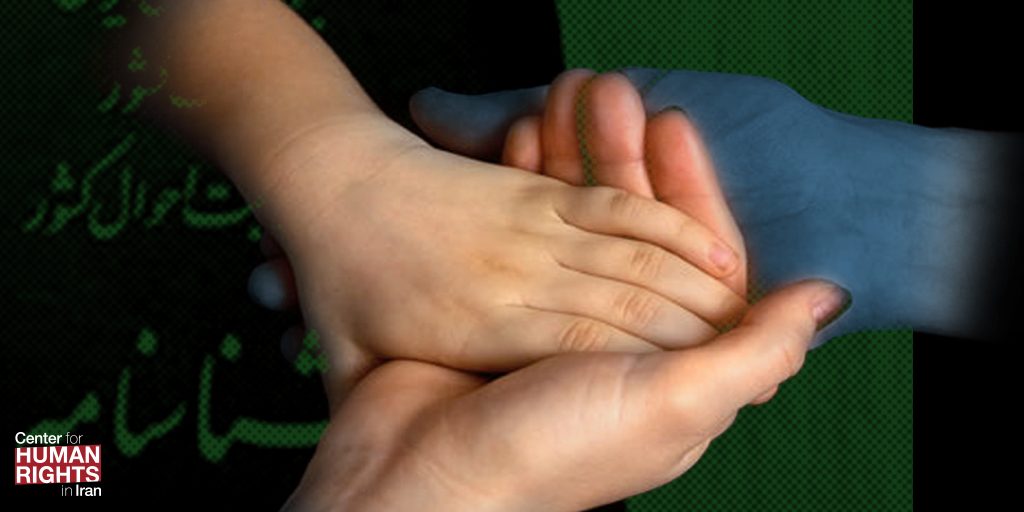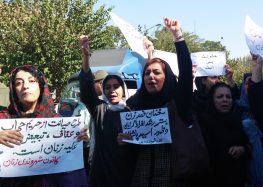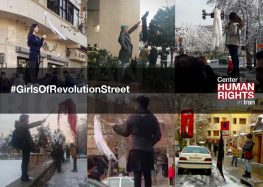New Legislation, If Approved, Will Give Citizenship Rights to Children Born to Iranian Women

In an important step to eliminate a fundamental and longstanding discriminatory restriction on Iranian women and their children, Iran’s Parliament overwhelmingly ratified the “Granting Citizenship to Children Resulting from Marriage Between Iranian Women and Non-Iranian Men” on May 13, 2019.
If the law is approved by the Guardian Council, the state body charged with vetting all legislation for conformity with Islamic law, it would give these Iranian mothers the right to gain citizenship for their children before the age 18, as well as the option for the children to make the request when they become adults at age 18.
The legislation was passed with 170 votes in favor, 21 opposed and four abstentions.
Up to now, nationality in Iran has only been able to be conferred through the paternal line. Iran has long been an outlier on this issue; it is one of only seven countries in the world (along with Brunei, Kuwait, Lebanon, Qatar, Somalia and Swaziland) that does not allow women to confer nationality upon their own children.
The ramifications of this have been significant: children without citizenship lack equal rights and cannot access social services on an equal footing with citizens. Children without citizenship are also more vulnerable to child labor, trafficking and prostitution.
If approved, the new law will allow an Iranian woman married to a foreign national to request Iranian nationality for any child born to the couple as soon as child is born, regardless of whether the marriage is registered in Iran.
In addition, the father need not be a legal resident of Iran for the child to be eligible for Iranian citizenship. Even if her husband is an undocumented immigrant, a mother can still file for citizenship for her children. Once nationality is conferred on the child, then the law provides that the husband can apply for residency.
Under its provisions, the Iranian mother and the non-Iranian father would need to be married only under Sharia law and not necessarily under Iranian Civil Code, which under Article 1060, restricts such marriages to government approval.
In cases where the child’s parents have died, the new legislation also gives the courts authority to approve their citizenship with proof of the mother’s Iranian nationality.
At 18 years of age the children of these marriages themselves “can seek Iranian citizenship, which would be granted with the condition that they receive security clearance (from the Intelligence Ministry),” according to the pending law, as quoted by the semi-official Iranian Labor News Agency (ILNA).
The law does not provide for procedural details, however, and even if approved by the Guardian Council, further and important details will be decided by procedural regulations to be approved later by executive power.
After passage of the new legislation by Parliament, Roozan newspaper’s political editor Alireza Khoshbakht commented: “The ratification of the law to grant citizenship to children of Iranian mothers is a big positive step. But as always, the devil is in the details. I hope it will not become useless with the addition of unnecessary conditions.”
Ahmad Meidari, Deputy of the Ministry of Social Welfare, stated in January 2019 that some 49,000 children would benefit if the legislation was approved and became law.
Importantly, the law does not require consent by the husband, and therefore the woman’s ability to confer citizenship on her children cannot be blocked or contested by the husband.
Legal experts expect that the legislation will be approved by the Guardian Council, because it was passed by such a strong majority in parliament, including by hardline parliamentarians. With such broad and crosscutting support, rejection by the Council is unlikely, although it is possible that the Guardian Council may add some restrictive clauses to it. Most observers expect commentary on the legislation to come from the Guardian Council in the near term, perhaps within the next few months.
“This legislation is primarily designed for children from religious marriages which have not been officially registered,” said Tayebeh Siavashi, Member of Parliament (MP) from Tehran and a leading legislator in the Women’s Faction, on May 13.
She added: “[If the legislation is approved] these couples will [only] be required to present proof of their religious marriage and proof of their children’s birth, but some of them are from very poor rural areas and their children were not born in hospitals.”
Indeed, while the MP noted that the passage of the legislation in Parliament had brought an enthusiastically positive response in Iran’s border provinces where most families of mixed marriages reside, one potential problem with the legislation is that the required proof of marriage and proof of the birth of the child may disadvantage poorer women from less developed provinces in Iran. These women may not have these documents because they might have given birth at home and the marriage may have been only unofficially registered by a local religious cleric.
The new law will replace current legislation passed in 2006, which makes citizenship eligible for children born to such couples within a year only after they turn 18, on the condition that they have no security issues or criminal records and renounce their non-Iranian nationality. The current regulations also only make citizenship available to such children born before 2007. If the new law receives final approval, it would cover all the children born to Iranian mothers and non-Iranian fathers, regardless of their year of birth.
Mixed marriages in Iran primarily involve Iranian women and men from Afghanistan, and, to a lesser extent, from Iraq and Pakistan, whose children have faced problems fully accessing social services in Iran because of lack of Iranian citizenship. With some 3 million Afghan refugees and migrant in Iran, the largest migrant community in Iran by far, the vast majority of mixed nationality marriages are between Iranian women and Afghan men.
The ending of discrimination against children of Iranian women married to foreign men has long been demanded by women’s rights advocates and both international and Iranian human rights organizations, including the One Million Signatures Campaign, as well as by many Iranians on social media, using the Persian hashtag #مادرم_ایرانی_است_من_کجایی_ام (My_Mother_Is_Iranian_What_Am_I).
Journalist and civil rights activist Jila Baniyaghoob tweeted on May 11, 2019: “The child was born in Iran. The mother is Iranian and the father is from Afghanistan but the child is not recognized as an Iranian citizen….”
Author Hamideh Chegoonian pointed out: “My friend has a foreign husband. When she wants to bring her son to Iran, she has to get him a visa.”
Journalist Fateme Khalili tweeted: “One of the most painful experiences for my sister after her wedding was that when she was returning to Iran she had to request a visa for her child.”
The latest legislation was initially drafted during President Hassan Rouhani’s first term in 2015, before being revised by the Parliamentary Committee for Judicial and Legal Affairs and eventually adopted in the full session of the legislature.
A day before its ratification, Presidential Adviser for Legal Affairs Laya Joneydi said: “Many of our distinguished women (abroad), such as the late [mathematics prize winner] Maryam Mirzakhani, have continuously tried to get Iranian citizenship for their children.
“Also, many Iranian women inside the country have been married to non-Iranian men and their children do not have Iranian nationality, which is discriminatory. Some of the problems in getting an education have previously been resolved, but now these children are having difficulties in gaining employment and enjoying other rights.”
Joneydi continued: “A large part of our Civil Code is based on Shia theological principles which can be modified with jurisprudential consultations. At the same time, there are other parts that are Roman-based European laws from 100 years ago, especially from the French legal tradition, which limited citizenship rights to the father’s children.
“Today those countries have changed their laws to allow both the father and the mother to transfer citizenship to their children. But we are still following old norms and that’s why we are in this situation today.”






